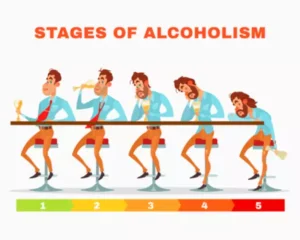
Motivation is the driving force for patients to make changes in their lives. By inspiring patients to be self-motivated, providers are also helping them set goals and milestones to manage their recovery. These tips can help you increase motivation during your time in rehab in order to thrive when you’re out. Without self-motivation to change their behavior, someone with a SUD would never remain sober.

Write A Gratitude List Each Day
This process can help keep your objectives aligned with your evolving needs and aspirations. Consider consulting a nutritionist to create a diet plan that supports your recovery goals. To combat these feelings, try to remove yourself from the triggering situation. If a song is playing, turn the radio off, if you get a text from an old friend with whom you used to use substances, consider blocking the number.
Keep a Recovery Journal to Stay Motivated
Let’s explore how these powerful narratives and resources reinforce our motivation when the going gets tough. Individuals who seek substance abuse treatment in order to improve their physical and mental wellbeing are more likely to succeed because their motivation is generally more sustainable than others. Individuals who are court-mandated or attempting to appease family members are less likely to be as successful in recovery as those individuals who seek recovery on their own accord. Overcoming addiction is one of the hardest but most important decisions an individual can make.
- The things that brought us to our recovery journey are even things we can be grateful for.
- You might even have a desire to share your writings or videos with others who are struggling (—which would be service work!).
- Working towards these goals also reinforces your commitment to your values.
- Reach out today to discuss your options with one of our recovery specialists.
- With care and nurturing, these seeds sprout into a garden of self-discovery.
- Make sure goals are measurable (How do you know how close you are to achieving it?) and specific (Can you clearly define when your goal will be met?).
It’s an art form to stay focused in recovery

It’s important to understand that you’re not alone during challenging times, and the success of others in the face of adversity will help you to press on. Triggers can be people, places, situations, or emotions that can cause cravings for drugs or alcohol. By identifying potential triggers, you can avoid them or develop coping strategies to manage them. It is crucial to recognize the situations and emotions that lead you to use substances to avoid them or have a plan to manage them when they occur. While motivation has provided you with a reason to end addiction, you must still achieve the necessary mental, emotional, and/or spiritual state to relentlessly pursue recovery.

As internal motivation has proven more effective in sustaining sobriety than external motivation like, financial incentives, according to a study conducted at University of Rochester, New York. It serves as a driving force, pushing individuals to their recovery path. It’s the inner urge and determination to beat addiction and make life changes. Motivation gives the strength and perseverance to battle challenges, withstand temptations, and stay devoted to the recovery procedure. Job hunting can be exhausting, especially if you’ve applied to numerous jobs and haven’t received a single response. The truth is, finding a great job takes time, so it’s very important that you stay motivated and maintain a positive outlook during your job search.
Overcoming challenges and triggers in recovery
Every day we encounter factors that motivate us from the outside (extrinsically). These extrinsic motivators coincide with external motivators because they are outside of ourselves. It’s time to level up and try again; getting back up after a relapse is like hitting the reset button on a motivational video game.
Seeking support from loved ones and the recovery community

It strengthens one’s own commitment to recovery, and helps reduce stigma and promote understanding in society. Learning from relapses and setbacks is also important in overcoming challenges. Rather than seeing it as a failure, use it as a chance for growth recovery motivation and learning. Renew motivation after a relapse by reminding oneself of the reasons for pursuing recovery and recommitting to the process. Learning more about addiction and its impacts not only increases understanding but also gives hope for change.
Find a Strong Support System That Will Support You Throughout Your Journey
Recovery from mental health conditions and addiction is a long and convoluted journey, so staying motivated can be challenging. When you decide to enter an addiction treatment program, you’re reclaiming your life from substance use. Not only do you have to muster up the humility to ask for help, walk away from your habitual patterns, and even detach https://ecosoberhouse.com/ from unhealthy habits, but you also have to be willing to commit to your recovery. One of the most important things to consider is how you can stay motivated in recovery from substance abuse. Staying motivated during recovery can be the beacon of light during challenging times, the push that keeps you moving forward even when the path seems steep.

